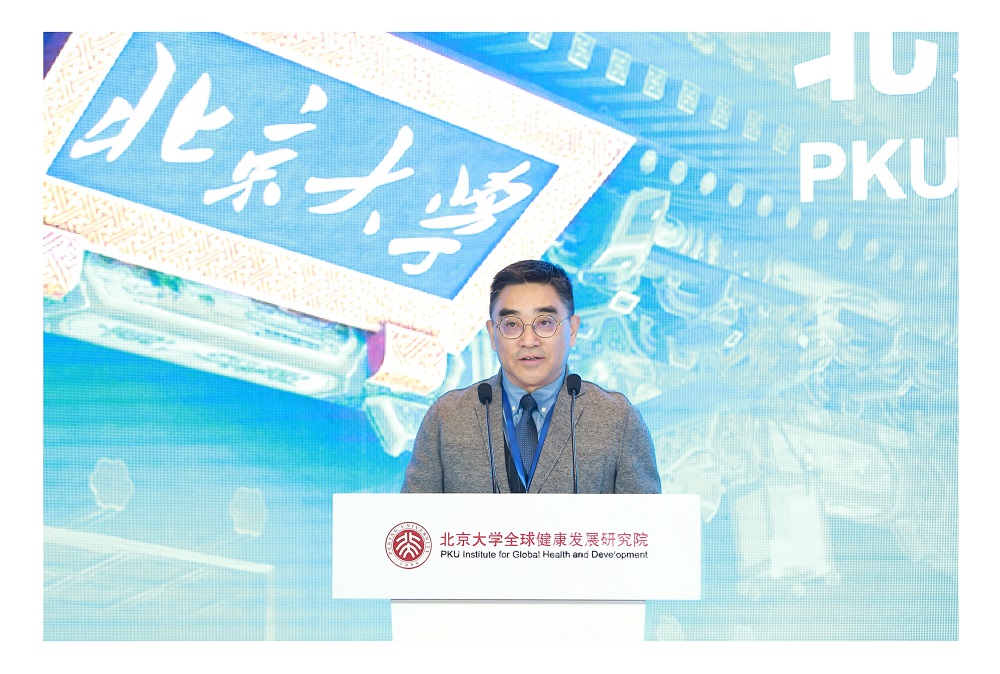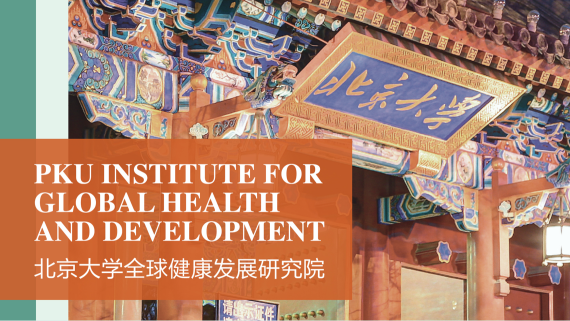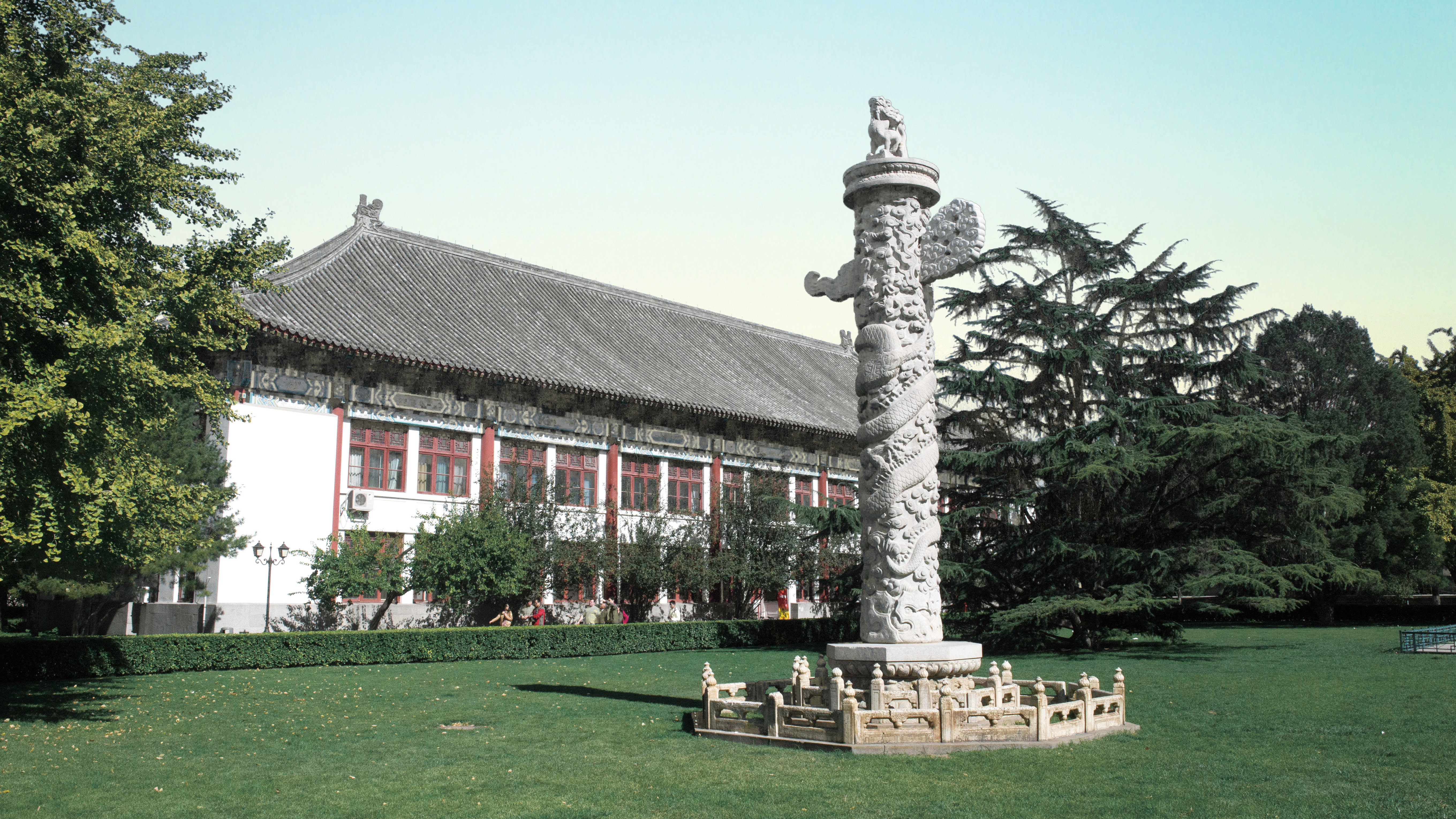
Gordon Liu, Dean, Institute for Global Health and Development, Peking University, spoke at the launching ceremony of Institute for Global Health and Development, Peking University (PKU-iGHD) and the Beijing Forum 2020: COVID-19 Shocks to Global Health and Development:
Distinguished guests from online and offline, leaders, faculty, students, good morning, everyone. I am really honored to have this opportunity to attend Beijing Forum 2020: COVID-19 Shock to Global Health and Development, and witness the solemn moment of the establishment of Peking University Institute for Global Health and Development. As a faculty member of Peking University, I am really honored to be appointed as the inaugural dean, and I know that I am shouldered really heavy responsibility. I would like to share three points with you as follows.
First, in a speech at the United Nations in September 2015, President Xi Jinping reiterated that countries in the world today are interdependent and share weal and woe to promote the building of a community with a shared future for mankind. Today, the launching of Peking University Institute for Global Health and Development is the concrete practice to it.
Second, the establishment of the Institute benefits from the solid scientific research foundation of Peking University, including related disciplines such as health care, economics and management, international relations, population and environment. Therefore, the Institute must rely more closely on and play the key role of the existing interdisciplinary development.
Third, the trend of economic development in the world has turned to the knowledge-based economy. The talents competition in global allocation has been increasingly strengthened. Therefore, the Institute must attract outstanding talents with advanced knowledge and global visons, to form first-class faculty and research team, so as to better provide the contributions and wisdom of Chinese scholars for the healthy development of mankind.
Also, I would like to take this opportunity to extend my special thanks to the global renowned top scholars joining us here online and offline, many of speakers are old friends of Peking University. Thank you for your generous and vital support for the Institute and Peking University. Please let me speak in English to extend my high respect. Thank you so much for your kind remarks and expectations for the Institute future road map, we are so grateful to have you with us today as we embark on our journey, and we will surely continue to consult with you closely as we move forward.
In Section II next, we will be very fortunate to have great keynote speeches from world class thought leaders in economics, medicine, and international relations. In particular, I would like to highlight two observations to showcase some of their wisdom and vision.
In 2016, we hosted a special seminar talk here at Peking University National School of Development. The topic was the inclusive cost of pandemic risk based on the National Bureau of Economic Research working paper or NBER working paper. Believe it or not, among 15,000 or so NBER working papers, there was only one on pandemics. And today we are so honored to have the papers' two visionary co-authors with us, Professor Larry Summers and Dean Jamison who will both speak to us in a minute.
My second observation is on landmark work commissioned by the WHO in 2001 titled "Microeconomics and Health" led by Jeffrey D. Sachs of Columbia University, together with 17 other leading scientist and economists. In its executive summary, a central message was to be aware of challenges of globalization while enjoying its great benefits. It argues, that globalization is under trial, partly because globalization introduces new kinds of international challenges. As turmoil, one part of the world can spread rapidly to others through terrorism, armed conflict, environmental degradation, or pandemic. What a great call to action then in light of COVID-19 at the present time.
As such, we are truly thrilled that Professor Jeffrey D. Sachs also joins us today in Section II. So due to time constraints, I cannot continue to showcase the highlights for other distinguished speakers in the forum, but I am sure we all will learn a great deal from their talks.
Thank you all, and I look forward to Section II after the break. Thank you.

Peking University Institute for Global Health and Development (GHD), founded in 2020 with Professor Gordon G. Liu as the inaugural dean, is a subsidiary academic unit of Peking University. As a cross-disciplinary institute, GHD brings together the university's expertise in health economics, public health, international relations, environmental science, digital technology, and other relevant fields. Following the vision of “One World, One Health", GHD addresses global health issues from the perspective of human development. Through interdisciplinary research, education, international collaboration, and industry-academia integration, GHD explores innovative solutions to critical challenges in human health, promotes China’s active role in global health governance, and contributes to building a global community for sustainable, inclusive development.

Global health is an emerging, cross-sector discipline that developed rapidly in the 1990s against the backdrop of globalization. Differing from the traditional public health discipline, global health transcends national borders and focuses on human health development. It is a field dedicated to solving health and sanitation problems faced by mankind as a whole, at the same concerned with preserving the delicate balance of human-animal-environmental ecology, a concept referred to as “One Health.”
Global health emphasizes a transnational, cross-sectoral, and multidisciplinary approach to the promotion of human health. Global health governance and policy-making is based on the fundamental values of respecting human rights and guaranteeing social justice, so that everyone around the world enjoys the highest level of health and wellbeing. Global health governance promotes the joint participation of many actors, including those in traditional and innovative, state and non-state, health and non-health sectors. Through diverse diplomatic negotiation, the rules, standards, and norms of global health are formulated, and the effect of global health policies are jointly monitored and evaluated. Global health research is highly interdisciplinary, encompassing related fields such as medicine, economics, management, international relations, sociology, and other disciplines.

Peking University Institute for Global Health and Development will build faculty capacity through global recruitment for full-time employment as well as dual appointment of the current PKU faculty members from related disciplines. In particular, it will draw rich faculty and research resources from various schools and institutions on both the main campus and health science centers, including the School of Public Health, School of Basic Medical Sciences, School of Pharmaceutical Sciences, National School of Development, Institute of South-South Cooperation and Development, School of Economics, Institute of Population Research, School of International Studies, Guanghua School of Management, School of Advanced Agricultural Sciences, College of Environmental Sciences, College of Engineering, and School of Journalism and Communication. At the same time, It will conduct global search to recruit leading scholars focusing on emerging and cutting-edge disciplines currently experiencing talent shortages within the University.
Peking University Institute for Global Health and Development will admit doctoral and master’s students domestically and abroad, aiming to train the future generations of leaders with international vision and research capacity in the field of global health for academia, public service, and business sectors. The graduate programs will be conducted with effort to collaborate with leading universities in the world. It will also provide a well-funded platform to train post-doctoral research fellows that are from both domestic and international institutions.